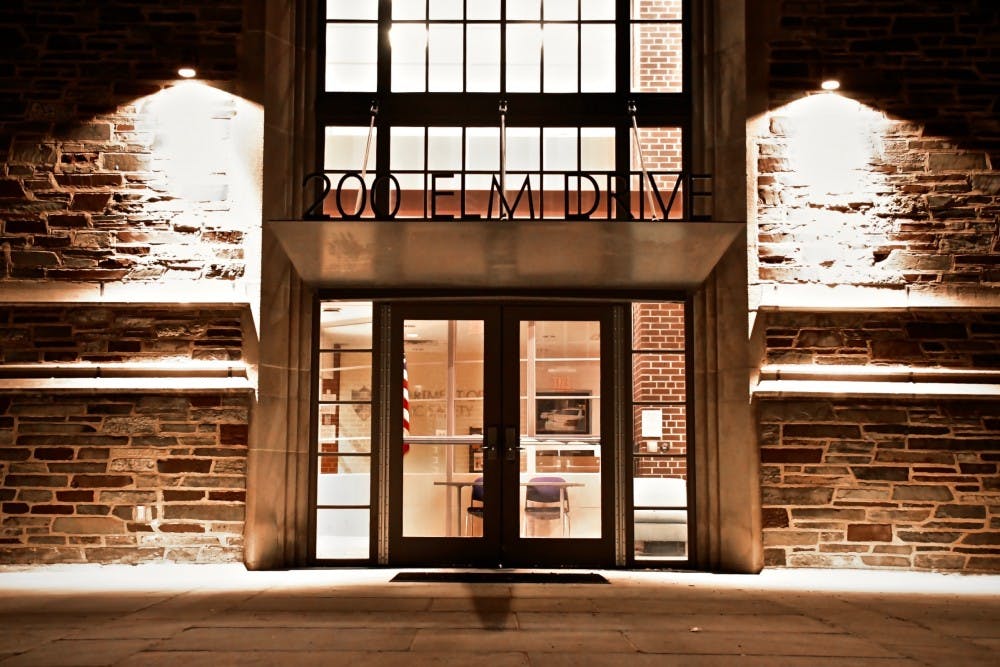Content Warning: The following article includes mention of student death. University Counseling services are available at 609-258-3141, and the Suicide Prevention Lifeline is available 24/7 at 988 or +1 (800) 273-TALK (8255). A Crisis Text Line is also available in the United States; text HOME to 741741. Students can contact residential college staff and the Office of Religious Life for other support and resources.
In the wake of the death of Misrach Ewunetie ’24, who was missing for nearly a week before her body was found on campus on Oct. 20, University administrators announced new campus safety measures in an email to all students, faculty, and staff on Tuesday, Nov. 1.
Administrators said in the email that the Mercer County Prosecutor’s Office will publicly release the “cause and manner” of Ewunetie’s death “on final determination by the Medical Examiner’s Office,” writing that this process “may take several weeks.”
They stressed, however, that in line with past statements by the Prosecutor’s Office, “Law enforcement authorities continue to affirm there is no evidence or suspicion of foul play.” The University has previously stated that the Department of Public Safety “does not believe there is any related threat to campus or the surrounding area.”
In the email, administrators wrote, “While we know that our campus is safe, it’s important that you also feel safe.” To ensure those feelings of safety, they outlined a series of increased security measures, including changes to building access, specifically within residential colleges, where access will be “limited to students and a short list of authorized faculty and staff,” according to the email.
This authorized faculty and staff, “may vary slightly by college, but it generally includes DPS, college staff, ODUS Deans who serve on call, and some Facilities and HRES staff who need access to do their work,” according to University spokesperson Ayana Okoya.
“The Council of College Heads also plans for now to lock common areas in all residential colleges 24/7. These areas will only be accessible to those in the University community during public hours (from 7:00 a.m. to 9:00 p.m.),” the email stated.
The Tuesday email added that “plans are underway to enhance campus lighting and to expand a security camera program, to further respond to concerns recently raised by students and staff.”
The announcement came from Dean of the College Jill Dolan, Dean of the Graduate School Rodney Priestley, Dean of the Faculty Gene Jarrett, Vice President for Campus Life W. Rochelle Calhoun, and Vice President for Human Resources Romy Riddick.
The Ewunetie family has previously raised suspicions surrounding the circumstances of Ewunetie’s death, and is raising money for expenses, including an independent autopsy, through a GoFundMe that has raised more than $145,000 since Oct. 24.
Casey DeBlasio, spokesperson for the Mercer County Prosecutor’s Office, wrote to the ‘Prince’ on Oct. 20 that “no foul play is suspected” in Ewunetie’s death. DeBlasio re-emphasized this message in an email to the ‘Prince’ on Oct. 24, writing that there is “no evidence of any criminal activity associated with Ms. Ewunetie’s death,” a finding that led the Prosecutor’s Office to end its involvement in the investigation.
Citing student concerns about a lack of public information from the University and law enforcement throughout this process, administrators wrote in Tuesday’s email, “During an investigation, communication is often limited by protocol, to protect evidence-gathering and to avoid misleading the public.”

The announced changes to public safety protocol comes amid past calls by students for increased security. On Sept. 19, at the first Council of the Princeton University Community (CPUC) meeting, Uma Fox ’26 had raised a concern about pedestrian safety and lighting around campus.
Associate Vice President of Capital Projects Dozie Ibeh addressed this concern in the meeting at that time, stating that a group of representatives takes part in campus safety walks every semester in order to identify areas for improvement. Several pathways, particularly in the center of campus, are slated to undergo improvements to offer wider walkways and additional lighting.
According to Okoya, this group of representatives includes individuals from Housing and Real Estate, Facilities, Public Safety, Environmental Health and Safety, Residential Colleges, The Graduate School, The Office of Disability Services, and student committees. The walks take place in the early evening hours, Okoya clarified, “to evaluate and ensure areas around dormitories are safe for students, especially at night.”
She added that these campus safety walks have not taken place yet for the Fall 2022 semester, with a Graduate Housing Safety Walk scheduled for Nov. 7 and an Undergraduate Housing Safety Walk scheduled for Nov. 15.
Tuesday’s email also announced changes to University Counseling services. The University is planning to immediately hire “the equivalent of two full-time counselors,” stating that this is “typical when we experience increased demand.”
“We will also be launching the CPS Cares Line, which will provide 24/7 access to a counselor by phone,” the email added, additionally referencing resources for faculty and staff through Carebridge.
Katherine Dailey is a head news editor who often covers breaking news, politics, and University affairs. Please direct any corrections requests to corrections@dailyprincetonian.com.








